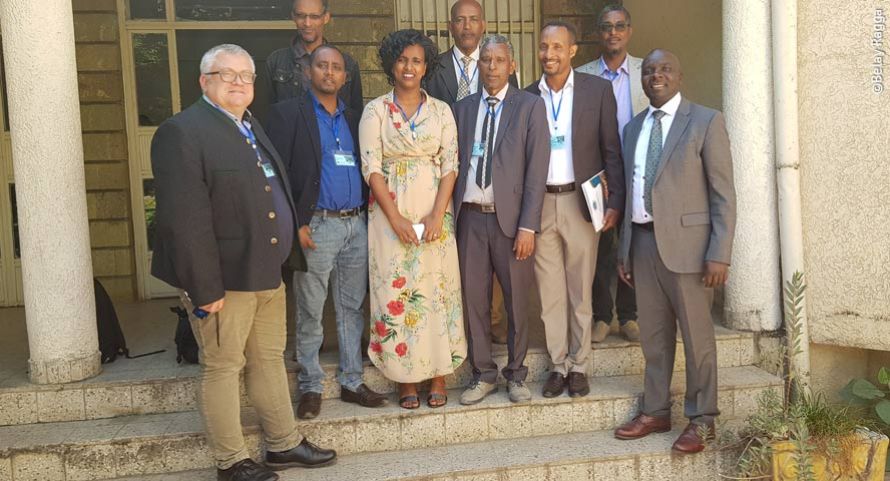Energy Through Domestic Biogas Plants

The challenge
In the two Ethiopian districts of Damot Woyde and Dugna Fango, more than 75 percent of the population live on agriculture. Approximately 95 percent depend on biomass as an energy source. Most often, residents use firewood, primarily for cooking. But wood is becoming increasingly scarce. This situation threatens people’s livelihoods because wood is becoming more expensive due to the shortage. However, as people look to dung and crop residues as energy sources, the fertility of their soil becomes reduced.
The objective
One way to address this energy crisis is to use crop residues and dung as an energy source for small biogas plants instead of further using wood for cooking. With biogas plants, residents of Damot Woyde and Dugna Fango can produce enough biogas for cooking and lighting. The advantage of this strategy is that women no longer have to go out to collect wood and are able to use this time for productive work instead. In addition, biogas burns almost smoke-free, thus protecting the health of women and children. Furthermore, the residues remaining in the biogas plant can be used as organic fertiliser. If implemented at large scale, the use of biogas plants can decrease the pressure on forest resources and establish a sustainable cycle.
Our partner
The project is led by Hawassa University, located in Hawassa, which is the capital of the Southern Nations, Nationalities, and Peoples’ Region (SNNPR). Hawassa University is committed to contributing to the development of the region by transferring and generating knowledge and technologies. It cooperates with numerous national and international partners. Currently, the university is implementing 51 projects. The two project districts, Damot Woyde and Dugna Fango, both belong to SNNPR.
The approach
In order to disseminate as many biogas plants as possible, the project informs the people in the districts comprehensively about the advantages and requirements of biogas plants. This is important because, within the framework of this project, interested parties need to bear 10 to 20 percent of the costs of the plant themselves, depending on their financial circumstances. The project’s second phase trains engineers on how to produce and use biogas, and how to design and complete a biogas plant. The knowledge learned is intended to improve the participants’ employment opportunities or enable them to become self-employed. The project aims to build up to 100 domestic biogas plants and train about 50 local micro-entrepreneurs to build and sell these plants.
Damot Woyde; Duguna Fango
Biogas
Farmers, whole population
10/2019 – 09/2021



